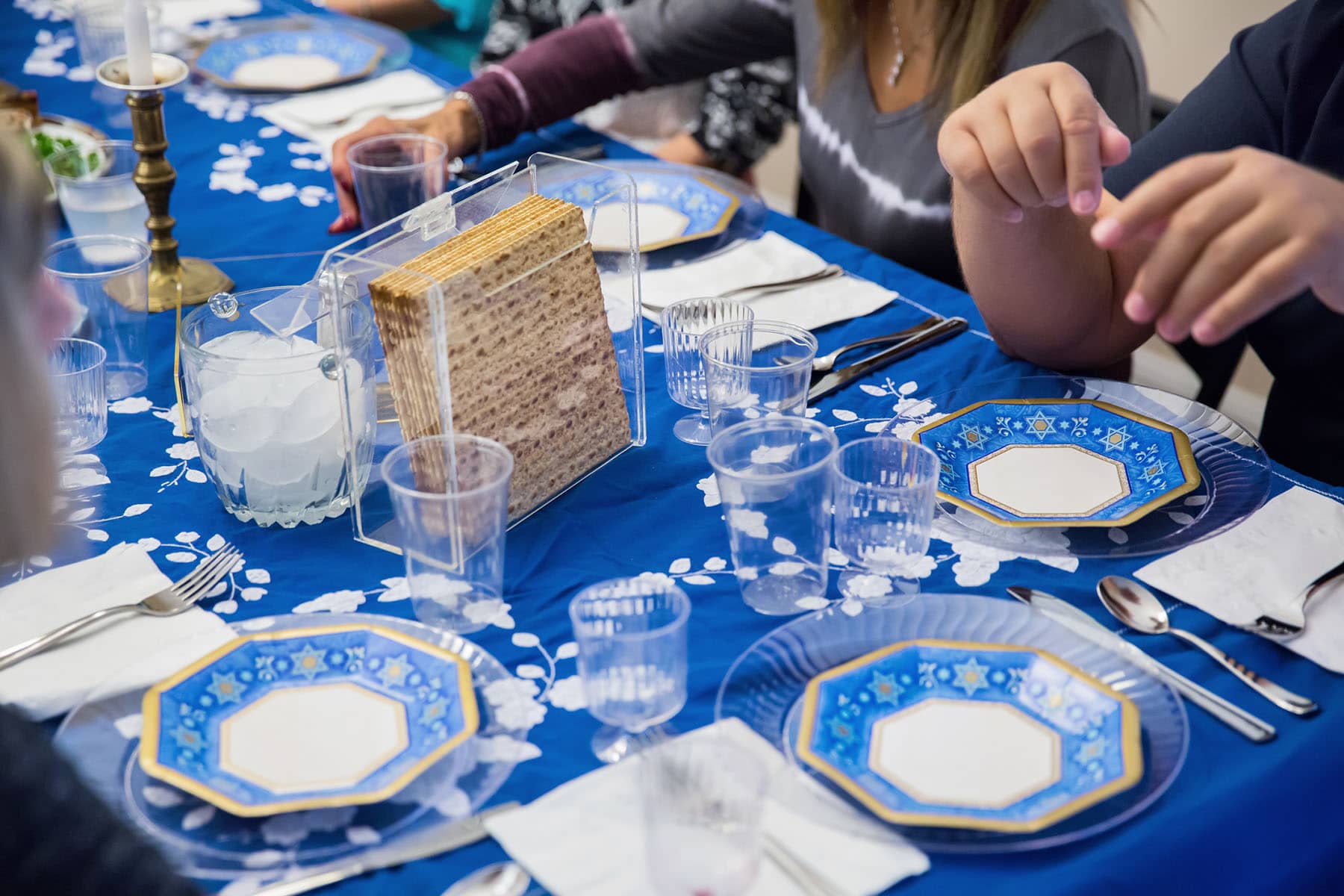 Photo by JodiJacobson/Getty Images
Photo by JodiJacobson/Getty Images Passover is three days away, and if you still don’t have seder plans, OneTable has you covered. Not many people realize the organization, which creates meaningful Shabbat dinner experiences for 20-and-30 somethings, also has resources for creating similar Passover seders.
Dani Kohanzadeh, OneTable field manager for Los Angeles, said one of the thrills of working with OneTable is helping individuals recognize hosting a seder is similar to hosting a Shabbat dinner.
“We believe that if you can host a seder, if you can figure out the intricacies of putting on this really special [and] organized gathering, then you can absolutely plan your own Shabbat dinner,” she said. “Our hope is that we can support the people who are trying out seder for the first time this year with a Shabbat dinner next week or later this year.”
Kohanzadeh said Passover seders are a huge moment for OneTable and are a major spring kick-off Jewish event that leads to more Shabbat dinners. There are more than 1,000 Passover events taking place this weekend across the country, 57 of which are happening in L.A. If hosting a seder virtually or safely in-person this year seems intimidating, the OneTable team is with you every step of the way.
Not only has OneTable partnered with haggadot.com to curate special Haggadot (prayer guides) for their users, it also partnered with Jewish Federation NuRoots initiative for fun and spiritual events. For the seder itself, OneTable has a series of Passover resources including guides to group, solo and Shabbat seders as well as recipes, playlists, DIY elements and inspiration boards.
Using OneTable’s resources, young adults can host or attend virtual, household-based or outdoor, socially-distanced Passover gatherings. Through its sister website Herefor, OneTable extends support to people of all ages interested in finding new ways of making the holidays feel holy this year. These platforms offer financial and creative support for Passover gatherings, a way to connect with others interested in hosting or attending the Passover meal and a place to reflect on the celebration.
Kohanzadeh said that last year, many had to learn how to celebrate major holidays alone. A year later, some still can’t reunite at the seder table, so the OneTable team is working to ensure that everyone from group pods to individuals has what they need to feel connected.
Al Rosenberg, chief strategy officer of OneTable, said the pandemic allowed the organization to reimagine how Jewish life can exist so everyone can create memories and maintain Jewish rituals in a time of isolation.
The pandemic allowed the organization to reimagine how Jewish life can exist so everyone can create memories and maintain Jewish rituals in a time of isolation.
In 2020, OneTable and Seder2020 (now Herefor) supported more than 38,000 virtual Passover participants, building on a long history of facilitating meaningful engagements. A recent OneTable study on how its young adult community is coping during COVID-19 showed that participants are relying on Shabbat more than ever. OneTable’s resource usage increased by 52 percent from 2019 to 2020 because users wanted to connect to their communities, rituals and Jewish identities.
“We learned a lot last year about the ways people can be creative and adapt ritual to make meaning in these times of distance,” Rosenberg said. “People may not gather together this year, but we can help create those personal connections and interactions that make Passover special, memorable and resonant today.”
Kohanzadeh said OneTable events allow young adults to feel like they have a connection to their Judaism and can take ownership in keeping Judaism alive.
“Our mission has always been about helping young adults build a practice that feels personally authentic and sustainable,” she said. “That’s so much more meaningful now as people are doing this on their own for the first time or feeling an increased need to try something out — in the spirit of Shabbat or Passover —that they haven’t in the past.”























 More news and opinions than at a Shabbat dinner, right in your inbox.
More news and opinions than at a Shabbat dinner, right in your inbox.